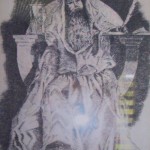
Please note: If you want to go directly to the article discussed, click on the picture to the right of the discussion.
On Monday, we said that an artist needs to work systematically to capture the particular characteristics of their subject, rather than applying their own artistic interpretation. We gave great tips here when writing the blog entitled: Tips for Graphite Drawing.
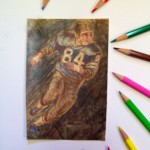
On Tuesday, we said you can build up layers of crosshatching to produce an “optical mix” of color. This gives a visual effect which appears that the colors have blended. There are several colorful ideas for you in the blog post entitled, Tips to Draw with colored pencils.
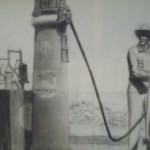
On Wednesday, we passed on great suggestions in blog post entitled, Five Tips that help Artist Make Preparatory Drawings. We said that In the distant past, drawings were primarily used as studies for later paintings. They were not the end itself but a means to an end. We know this by studying the many painting sketches of any of the masters going back into the middle ages and beyond.
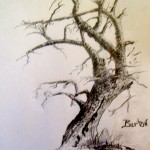
On Thursday, we wrote in the blog post entitled, Tip: Don’t Throw Away Graphite Sketches, to be sure you keep all your preliminary work–your sketches, graphite drawings, color workups, etc. You never know when someone wants them…even willing to pay for them.
It wasn’t in my plans, but the graphite sketch, Knobby Tree, sold but the watercolor with the same name never did. This was simply a preliminary work for the painting…you never know?
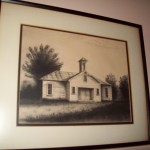
On Friday, we discussed different types of drawing paper for graphite pencil. I also discussed my late friend, James Frederick, who draw so many beautiful graphite drawings.
In the blog I passed along funny story James once told me. When he enrolled at the University of Texas as a student, he noticed that there was an art class with “live models.” He being an “all American boy” thought…
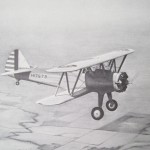
On Saturday, we pointed out how important it is for artist to capture the atmospheric perspective in their drawing details. Crisp dark lines should lighten to show the apparent diminution in the size of objects as they recede in the distance.
If you notice, the effect of distance and atmosphere has been carefully considered in James Frederick’s graphite pencil drawing, Stearman.
